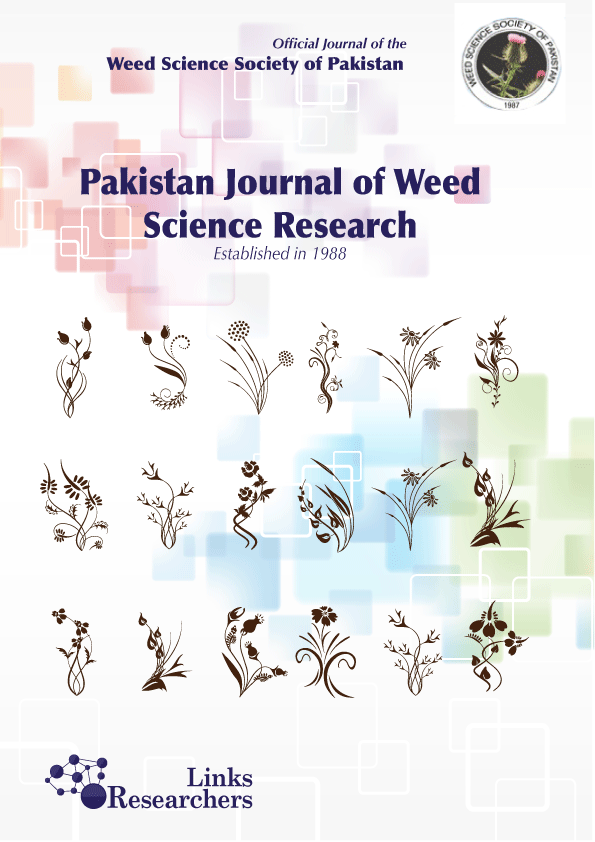ALLELOPATHIC EFFECTS OF AQUEOUS EXTRACTS OF Carthamus tinctorius L. ON EMERGENCE AND SEEDLING GROWTH OF Echinochloa crus-galli L.
ALLELOPATHIC EFFECTS OF AQUEOUS EXTRACTS OF Carthamus tinctorius L. ON EMERGENCE AND SEEDLING GROWTH OF Echinochloa crus-galli L.
Muhammad Ather Nadeem1, Bilal Ahmad Khan*1, Sadia Afzal2, Ahsan Aziz1,
Rizwan Maqbool3, Muhammad Mohsin Amin1, Amir Aziz4, Amjed Ali1, Muhammad
Adnan1, Durrishahwar5
ABSTRACT
To share on other social networks, click on any share button. What are these?





